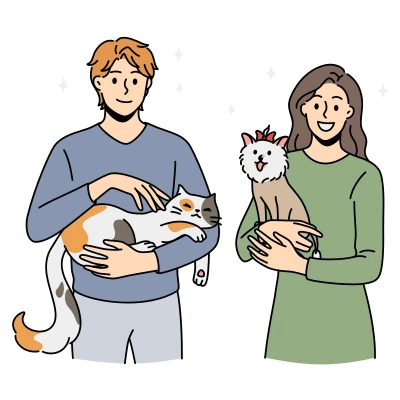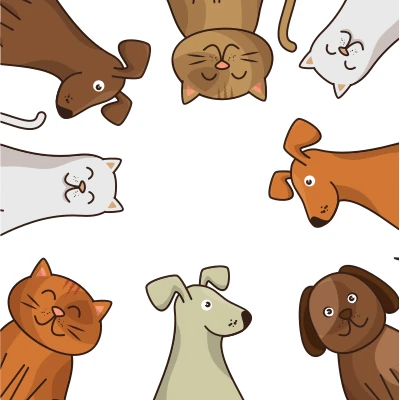
My private pet

Organizational pet
Add pet in shelter
Protect my pet
Report my pet lost
Report found pet
Search by photo

30 days risk free purchase!
If you don't love it we'll take it back, no questions asked.
Reach out at hello@findpet.com to get your shelter giveaway package
The shelter often has Guinea Pigs available for adoption! This is a photo of a guinea pig that was already adopted, but you can check out our Small and Exotic pets page on the shelter website for an up-to-date listing of currently available small critters =) Our guinea pigs home with a responsible, caring family with adults, older kids or well-supervised younger children, where he can enjoy safe out-of-cage playtime and gentle handling every day. Guinea Pig Care Weight: up to 2 pounds Life Expectancy: 5 to 7 years Cost of up-keep per year: ~ $650.00 Good pet for older children who know how to hold them. Not good for younger children without parental supervision HOUSING: They are social, pack animals that like to live in groups. However, as most rodents, they multiply rapidly so keep only same sex pairs. Two females will get along well; two males should be introduced when young. Provide a cage of at least 4sq. feet per pig with a wire top. Bottom of cage should be solid; wire bottoms hurt their feet. Glass aquariums do not provide enough ventilation. Temperature should be between 60 and 80 F. Use aspen or hardwood shavings, Timothy hay or processed paper products. Do not use cedar or pine shavings as they contain oils that are harmful for your pig. Provide a medium flower pot for bed or a commercially sold bed for Guinea pigs as they need to go on a cave for sleeping. Bricks, rocks, and tunnels made of cardboard or plastic pipes will make good toys. Do not house your Guinea pig with other small animals. DIET: Guinea pig food pellets, about 1/8 cup a day. Timothy hay, bite size fruits, kale, green peppers, peas, apple, grapes, and oranges. They may need additional vitamin C. AVOID: Nuts, dry fruits, corn, iceberg lettuce, potato, cabbage, broccoli, and any old or spoiled food. Since guinea pig’s teeth grow continuously, give wood twigs and branches that are clean and have not been treated with pesticides. Water should be available all the time via an attachable bottle with drinking tube. It is normal for guinea pigs to eat their own excrement; it contains vitamins B and K that they need. BEHAVIOR AND HANDLING: Guinea pigs communicate with sounds and gestures; they may “popcorn” – jump in the air with joy and excitement, squeak with delight when their favorite human enters the room, freeze when scared, cry with hunger, males purr or shatter their teeth when getting ready for a fight. When you bring your guinea pig home, allow him to be alone for one day to adapt to the new environment. Start by offering food in the cage and when he gets used to you, you may start picking him up. When handling, support his whole body; one hand in bottom and one on top. Do not allow children to handle guinea pigs without supervision. A towel may be used to hold the pig while holding him to avoid dropping him, which may result in serious injuries. Once your guinea pig is hand tame, you may allow him to be outside of the cage always supervised, in a confined space, where there are no cables or anything he can chew on and hurt himself, or escape and get lost. DAILY CARE: Long hair guinea pigs need to be brushed daily. Stale food, poop and soiled/wet bedding should be cleaned daily. Cage should be scrubbed with mild soap and water weekly. Let air dry before putting new bedding. HEALTH CARE: Common signs of illness are: sneezing, dirty eyes or ears, diarrhea, hair or weight loss, change of behavior. Sources: ASPCA Small pet care- http://www.aspca.org/pet-care/small-pet-care; Petco Guinea Pig care sheet - http://www.petco.com/assets/caresheets/smallanimals/Guinea-Pig.pdf; Guinea Lynx http://www.guinealynx.info/ ___________ To begin the adoption process, please complete the adoption questionnaire at tinyurl.com/MCASACQuestionnaire. Once we receive and review all your information, you will be asked to schedule an appointment to meet some potential new family members. We are proud to offer same-day adoptions! Please bring a leash and collar/harness or a carrier with you to take a new pet home at the time of your appointment. You are always welcome to visit our adoption center anytime we are open to view our animals. Our hours and location can be found here: https://www.montgomerycountymd.gov/animalservices/about/contactus.html. Please note, we cannot guarantee that any particular animal will be available for adoption at the time of your visit. In the interest of the animals, we are first-come, first-served by appointment. ___________ **** PLEASE NOTE: Our adoption process can move quite quickly, and applications are considered on a first-come, first-served basis. Some animals, especially puppies/kittens and small dogs, can go very quickly. For this reason, we recommend that if you see an animal you are interested in, you send in an adoption questionnaire as soon as possible. Please do not bring your current pets to the shelter. If you intend to adopt a dog and want the new dog and your current dog to meet, that can be scheduled with the help of your Adoption Counselor. Thank you! ***** Montgomery County residents are required by law to purchase a Montgomery County Pet License for all dogs and cats at the time of adoption. Pet licenses are $12 annually for animals over 1 year and free for animals under 1 year.